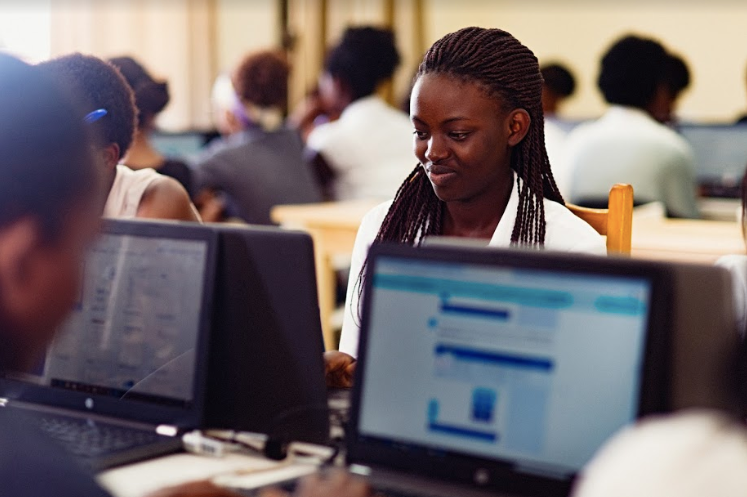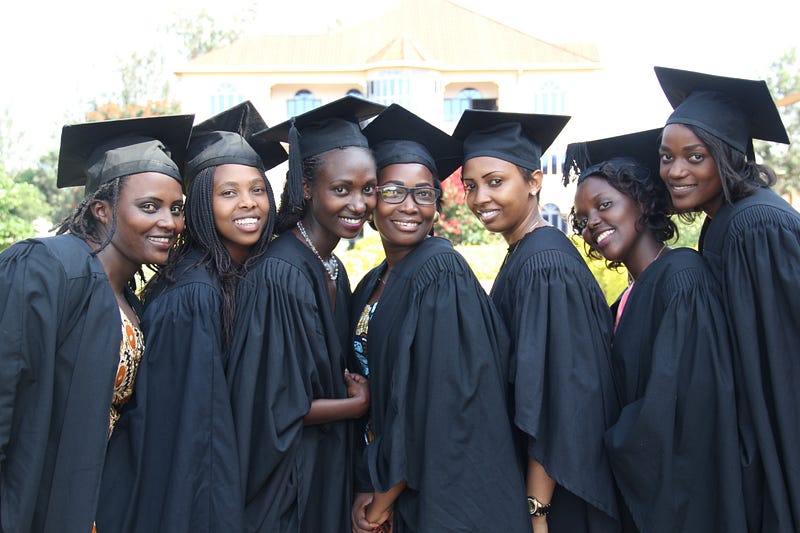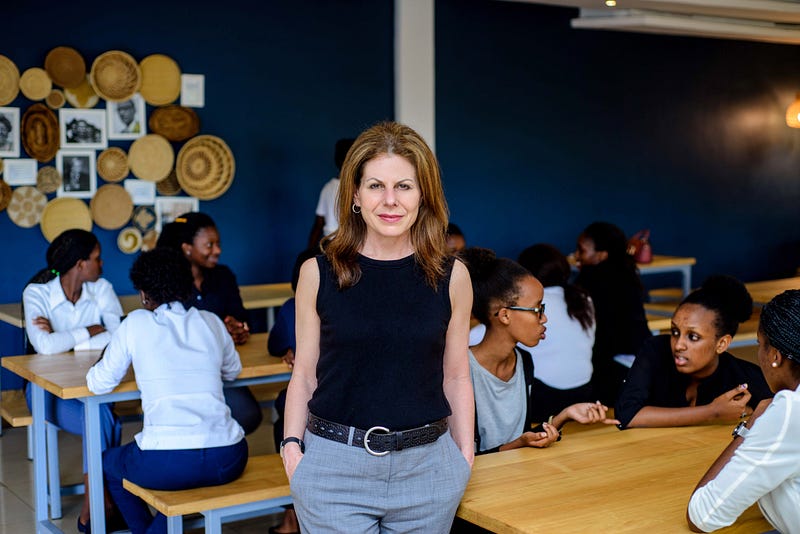Maintaining a Space for Women’s Education
An Unwavering Commitment to Women’s Education
Karen Sherman is the President of Akilah and the author of the forthcoming book Brick by Brick: Building Hope and Opportunity for Women Survivors Everywhere

Five years ago, I joined Akilah, Rwanda’s only women’s college, initially as a consultant to help with strategy. I was deeply inspired by Akilah’s unique approach to education, which continues to resonate with me today. Rather than starting with the supply — underserved women in need of skills and employment — we start with the demand — the skills gaps in the current and future labor market — and work backwards, so that young women graduate ready to assume leadership roles in the workplace and society.
Akilah opened in 2010 with 3 classrooms and 50 students. When I came on board full-time as its president, Akilah had grown to 355 students and 95 alumni, 90 percent of whom secured jobs within six months of graduation. My goals were to enhance the quality and impact of our academic programs and, at the same time, build the infrastructure and staff for growth. It wasn’t easy. We struggled with capacity, systems and resource challenges. In spite of our focus on technology, business, and entrepreneurship, many in the education sector dismissed us as a cooking or sewing school for poor girls.
Over the next few years, as our reputation and impact grew, we made strategic investments in a new competency-based, blended (online and in-person) education model to drive higher student outcomes and scale. Technology was the backbone of our expansion. The model’s key pillars: 21st-century skills, personalized learning, innovation, ethical leadership, and sustainability, enable learners to address complex global challenges and launch meaningful careers.
Today, with more than a thousand students on campus, near 90 percent employment rates, and graduate incomes that average twelve times the national median, hundreds of young women across the country are leading productive and purposeful lives and are able to invest in their families and communities. They take on senior roles in companies, launch their own businesses, develop new apps and design programs. Graduates like Sandrine, who parlayed her love of computers into an information systems degree and a career as a software engineer, Nichkita, who now teaches computer science, and Anita, the first female safari manager in Rwanda. These women are the next generation of female leaders in Rwanda.

After a decade of pioneering women’s education, we knew it was time to share our model with the rest of the world. Millions of learners across Africa and Asia, young women and men, are all clamoring for a market-relevant, personalized, and affordable education. Now, we’ve launched Davis College, a new global network of co-ed universities.
Our commitment to women’s education and economic empowerment hasn’t wavered. In fact, it’s at the heart of what we’re doing with Davis. Akilah will continue to grow and thrive as its own all-female campus within the Davis College network. Why?
Because one billion girls and young women around the world still lack the education and skills they need to succeed in a rapidly changing labor market.
Because in Rwanda, only 7 percent of university aged women participate in higher education.
Because Sub-Saharan Africa is still home to the largest gender gap in education. Across the region, only 64 women for every 100 men are enrolled in tertiary education.
Because women typically reinvest the majority of their earnings in the health, education and nutrition of their families.
Because educated women have more agency, marry later, and have fewer children. Their daughters tend to stay in school longer, marry later, and have fewer of their own children.
Because women’s education contributes to positive and more inclusive economic growth; when 10 percent more girls go to school, a country’s GDP increases on average by 3 percent.
Because when girls and young women receive more education, they not only increase their future earning potential (each additional year of schooling a woman receives results in a 10–20 percent increase in wages) they launch and lead businesses and contribute to the local economy .
Because companies with greater proportions of female leaders tend to perform better.
Because educating women and girls is one of the top solutions to climate change.
And because when women are educated and earn incomes — families and communities benefit. Whole societies benefit.
With population growth, climate change, and new technology, our world is changing more rapidly than ever before. To thrive, we need a generation of female leaders who are focused on the solutions. At Akilah and Davis, we educate those leaders to solve the world’s most pressing challenges through a lens of opportunity and sustainability.

I’m proud to be Akilah’s President, ensuring that women have as many opportunities as possible, in education and in their careers. And I couldn’t be prouder that we are now expanding access to all students, while maintaining our Akilah campuses expressly for women. I’ve witnessed firsthand the power and impact of education and income on women, their families and communities, and the ripple effect that extends well beyond those circles. On the eve of Akilah’s decennial, I can’t wait to see what the next decade of transformative women’s higher education will bring.
